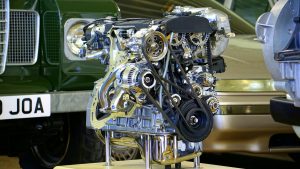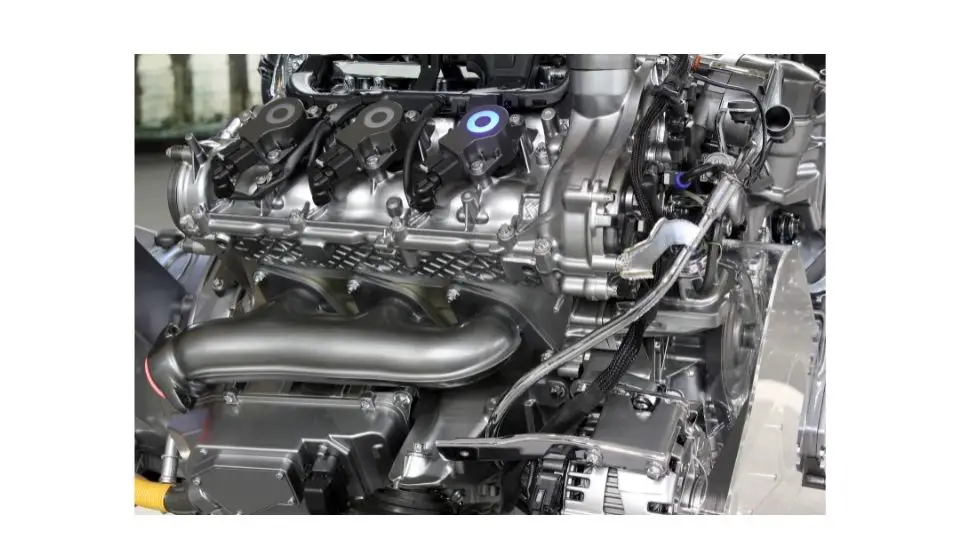Key points to highlight:
- Reliability: The Chevy 4.3 V6 Vortec engine is highly regarded as one of GMs’ most reliable engines, with reports of it lasting well over 300,000 miles.
- Performance: Despite some concerns about its power for heavy-duty trucks, the 4.3 V6 offers a good balance of torque and efficiency, making it suitable for daily commuting and offering decent fuel economy.
- Common Issues: Intake manifold gasket leaks and throttle position sensor/idle control valve failures are pointed out, though these problems are typically manageable with regular maintenance and checkups.
- Longevity: With proper care, the 4.3 V6 engine can surpass 200,000 miles and even reach over 300,000 to 400,000 miles without significant performance decline, which highlights its exceptional durability and longevity.
How reliable is the Chevy 4.3 V6 engine? In this article, we are going to be looking into this question to establish just how reliable this engine is.
In short, the Chevy 4.3 V6 Vortec is considered one of the most reliable engines that have ever been made by General Motors (GM). It runs on a lot of mid size trucks and has been known to clock well over 300,000 miles based on many Chevy owner reviews.
From that summary, you will realize that the Chevy 4.3 V6 is a super reliable engine that you can expect to enjoy for a very long time, especially if you take good care of it.

Chevy 4.3 V6 Vortec Engine Background
The Chevrolet 4.3 V6 Vortec engine is a renowned powerplant known for its reliability and performance. Introduced in 1986 and produced until 2014, this engine has earned a strong reputation among truck and SUV enthusiasts. Its name, “Vortec,” comes from its innovative combustion chamber design, which promotes efficient airflow by creating a vortex within the engine. This design improves fuel combustion, resulting in improved power output and fuel efficiency. The 4.3 V6 configuration provides a balance between power and fuel economy, making it a popular choice for a wide range of vehicles, including pickups, vans, and SUVs.
If you’re interested to learn more about the Chevy 4.3 Vortec engine, check out this great video below.
Is the Chevy 4.3 V6 a Reliable Engine?
Over that lifespan, the engine went through 5 revisions making it better each time. It ran in mid size trucks but several people felt that it was too small for those type of trucks and towing heavy weights.
This is partially true as the engine packs a lot of toque for that size engine but not as good as a V8 which most people felt should run on that size truck.
Even though the truck has a lot of power for the engine size and can take a lot of “abuse,” you will want to make sure to run it within the recommended load and towing parameters.
It’s great as a daily commute engine in your vehicle. It has decent but not the best fuel economy but the reliability makes it worth it.
Common Problems of the Chevy 4.3 V6 Engine
Now, let’s look at some of the known problems found on this engine. Though it is a near-perfect engine, there are some issues that need highlighting so that you are aware should they occur.
Intake Manifold Gasket Leaks
The intake manifold gaskets on some of the generations of the Chevy 4.3 V6 have been known to go bad leading to leakages, overheating and other related issues.
When this happens, you may experience the following symptoms:
- Overheating engine: One of the most immediate and concerning symptoms of an intake manifold gasket leak is engine overheating. When coolant escapes from the intake manifold area, it can lead to a decrease in coolant levels within the cooling system, causing the engine to overheat.
- Coolant leaks: Visible coolant leaks are a sign of an intake manifold gasket leak. The leakage typically occurs around the junction between the intake manifold and the cylinder heads, resulting in coolant seepage onto external engine surfaces or into the combustion chamber.
- Inefficient air to fuel ratios leading to bad fuel economy: An intake manifold gasket leak can disrupt the proper air-to-fuel ratio within the engine, leading to inefficient combustion. This inefficiency results in lower fuel economy as the engine struggles to maintain optimal fuel consumption levels.
- Misfiring engine: Due to the disruption in the air-to-fuel ratio caused by the intake manifold gasket leak, the engine may experience misfires. Misfires occur when the air-fuel mixture ignites improperly or fails to ignite altogether, leading to rough running conditions and potential engine hesitation.
- Sluggish acceleration: The compromised air-to-fuel mixture resulting from the intake manifold gasket leak can also affect engine performance, causing sluggish acceleration. This symptom is often accompanied by an obvious decrease in power output and responsiveness when accelerating the vehicle.
Throttle Position Sensor and Idle Control Valve Failure
Another common problem that you may experience with the Chevy 4.3 V6 is failure of the IVC and TPS. These are linked to your engine accelerating and idling in response to the pressure applied to the accelerator pedal.
When these fail, you may experience the following:
- Engine stalls randomly: The TPS and ICV play important roles in regulating engine idle speed and response to throttle input. When these components fail, they can disrupt the engine’s ability to maintain a stable idle speed, resulting in random stalling. This abrupt loss of engine power can occur at any time, including during idling or while driving, posing safety concerns for the vehicle’s occupants.
- Rough idling: A failing TPS or ICV can cause irregular engine idle speed, leading to rough idling. The engine may exhibit fluctuations in RPM (revolutions per minute) or exhibit a loping idle, where the engine speed oscillates between high and low levels. This rough idling condition not only affects engine smoothness but can also contribute to increased fuel consumption and emissions.
- Little to no accelerator responsiveness: The TPS is responsible for sending signals to the engine control unit (ECU) regarding the position of the throttle pedal. When the TPS fails, it can result in a lack of response from the engine to changes in accelerator pedal position. This lack of responsiveness can manifest as delayed throttle response or an unresponsive accelerator pedal, making it challenging to accelerate the vehicle smoothly.
- Hard shifting and insufficient power: A malfunctioning ICV can disrupt the engine’s ability to maintain proper idle speed during gear changes, leading to hard shifting in automatic transmissions. Additionally, a faulty TPS can affect the engine’s power delivery, resulting in reduced acceleration and overall performance. This lack of power can be particularly noticeable when attempting to accelerate from a standstill or when climbing inclines.
How Long Can the 4.3 V6 Last?
As far as longevity is concerned, this is one of the best engines out there. You can expect to go past the 200,000 mile mark with this car.
There are accounts of users putting more than 300,000 miles on it and still running great. It’s no exaggeration that this is one of the best engines that Chevy has released.
If you manage to service it at regular intervals making sure to do oil and filter changes at the recommended intervals, there is no reason why you won’t be able to have this engine perform well for a really long time.
There’s an account on the forums of an owner of a truck running a Chevy 4.3 V6 engine who sold it to his cousin on the condition that he would get first option to buy it back if he decided to sell it. His cousin did not honor this and sold it to someone else. That person sold it to someone else then he to someone else. It was eventually repossessed and he was able to buy it back 4 and half years later at 300,000 miles.
At the time of posting, he had run it for another 4 years and it still ran great. By this time, the mileage was well over 400,000 without any noticeable drop in performance. I’m sure you will agree that that’s a phenomenal performance record.
Conclusion
To cap it off, the Chevy 4.3 V6 is a very reliable engine. In fact, it is one of the most reliable engines on the market as we speak.
Few engines, even by GM, have been able to replicate this level of performance or come anywhere close to it. Nothing is 100% good and the Chevy 4.3 V6 engine does have its drawbacks.
When you look at it though, the majority of these problems are based around it not being powerful enough for certain heavy duty pickup trucks. They rarely have anything to do with the engine not performing well.
Sources:
https://en.wikipedia.org/wiki/General_Motors_90%C2%B0_V6_engine
https://gmauthority.com/blog/gm/gm-engines/lv3/

Tomas is a retired Chevy Auto Technician that brings decades of hands-on experience and expertise to the table. He’s also a father to two incredible daughters. He enjoys using his knowledge and experience to help you solve and find reliable information on Chevrolet vehicles. Whether it’s troubleshooting engine problems or providing tips for maintenance, Thomas is committed to helping Chevy owners keep their vehicles running smoothly and safely.



